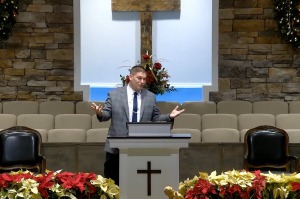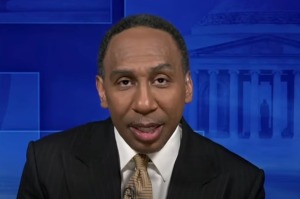How to Win Our Fight Against America's New State Church

Five hundred years ago this coming October Martin Luther challenged EC (Ecclesiastical Correctness) but now all varieties of the church and society in general are having to confront the glacial authoritarianism of PC (Political Correctness).
In 1517 Augustinian monk Martin Luther chafed under the authoritarian system he felt was robbing the Church of biblical authority and replacing it with human tyranny in the form of the Pope and his Curiatocracy. Further, Tetzel and his fundraising scheme offering a costly but quickie exit from Purgatory through a slick product called Indulgences was robbing people of the loveliness of biblical grace, Luther thought.
Luther's aim was to provoke a conversation, not launch a reformation. Yet when he nailed the Ninety-Five Theses that would be the topics of that conversation to the door of the Cathedral Church in Wittenberg, Germany, he got much more than a warm theological chat with the Pope and his emissaries.
Luther discovered that what the Church needed was not conversation but Reformation, and that all its parts needed to be involved.
Which brings us to today.
The authoritarian character of contemporary PC has never been more garishly revealed than in the current battles over freedom of belief and expression. While the genocide of Christians proceeds globally with horrid regularity the great establishments that form America's socio-cultural consensus mobilize their substantial weight upon who gets to go to which bathroom.
There are five of these ponderous institutions that concur, propagate, and preserve the present American worldview consensus — the Entertainment Establishment, the Information Establishment, the Academic Establishment, the Political Establishment, and the Corporate Establishment.
These five constitute the ecumenical structure of the present American state religion of humanist-secularism. They are in unity around their passion to force churches and their leaders into their social magisterium regarding marriage, family, gender, and sexual behavior — and who knows what else. The Bible is passé, anti-progressive, and obstructionist in the view of the High Church of Humanist-Secularism.
In Luther's day Pope Leo X and the Roman Catholic Church imposed a religion of stern absolutism on European society. Now, high priests of America's state religion are freezing out all opposition to their rigid dogma.
Supreme Court Justice Potter Stewart himself discerned the emergence of this new religion in his opposition to the 1963 SCOTUS ruling that restricted school prayer. He saw the decision as putting religion at a disadvantage and imposing a ban that would be seen, "not as the realization of state neutrality, but rather as the establishment of a religion of secularism." What Stewart saw aborning is now a fully developed institution.
One of the latest political leaders to do obeisance at the throne of the American humanist-secular church is Georgia Governor Nathan Deal. The NFL, for one, a member of both the Entertainment and Corporate Establishments, threw its bulk at the governor. Its great carrot of the Super Bowl might be yanked away if Deal didn't comply with the dogmatism of the humanist-secular church. Other establishment voices joined the choir screeching at poor Deal.
And so, festooned with high-sounding secular religion-speak, Governor Deal vetoed the legislation that would have protected non-secular religious institutions and their pastors from having to violate their own consciences — meaning that apparently only the secular church in Georgia is protected.
Civil government thus continues to write the dogma forming the magisterium of the American state church. Then civil authoritarians (called bureaucrats) write laws forcing us all to embrace their doctrine. We face inquisitional fury if we don't, as Deal discovered.
There are still people in the political establishment with the prescience of Potter Stewart. Texas Governor Greg Abbot is one of those leaders. So is North Carolina Pat McCrory. Both have stood up to the bullying, and risked the inquisitional passion of the high council of the American state church. There are others.
The great quandary burning in the soul of Martin Luther five hundred years ago was what to do. The glacial authoritarianism was freezing the heart of the Church he loved, and in which he wanted to remain. Today there are millions who love America, and who want to continue as loyal, productive citizens, yet watch as the country once so passionate about its opportunities and liberties becomes icebound. Many are asking Martin Luther's question: What can I do?
The new authoritarianism of the American state religion can only be met by a new ecumenism among Americans who embrace the Bible as authoritative, rather than the culture. This movement would not be an organic union of churches, but a strategic ecumenism that would enable all people who identify with the Bible to stand together. It has already worked in places like Houston, where church leaders across a broad spectrum with theological disagreements discovered strategically functional unity.
America has been blessed through the Judeo-Christian worldview, so the new biblical ecumenism should embrace Americans in Judaism, especially the Orthodox who maintain a conservative view of the Torah and Hebrew Bible. Catholics and evangelicals, Pentecostals and cessationists, dispensationalists and Reformed, and biblically conservative Protestants of all stripes should be part of this strategic ecumenism. Sadly, many mainline and emergent churches might decline, but those who want to join should be welcomed warmly.
The American Christian community is now as diverse as the population itself. There are churches of many nationalities and ethnicities. None should be excluded from this strategic ecumenism.
The humanist-secularist church loves to talk about "conversation," but it's always one-sided. If biblical people and their institutions try to participate in the dialog the state church cries: "Violation of separation of church and state! You must be excluded!"
Half a millennium ago Martin Luther hoped for conversation, but discovered the only hope was reformation. It is true now. With respect to the broad socio-cultural issues at stake only a strategic ecumenism uniting all biblically-based groups will be strong enough to go head-to-head with the new American state church.





























